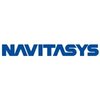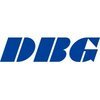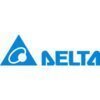Filter interviews by
Flash Electronics Interview Questions and Answers
11 Interview questions
QC focuses on identifying defects in products, while QA focuses on preventing defects from occurring in the first place.
QC stands for Quality Control and involves inspecting products to identify defects
QA stands for Quality Assurance and involves implementing processes to prevent defects
QC is reactive, while QA is proactive
QC is usually performed by inspectors, while QA involves the entire team
Example: QC would in...
An induction motor is a type of AC motor where power is supplied to the rotor by electromagnetic induction.
Induction motors are commonly used in various applications such as industrial machinery, pumps, fans, and compressors.
They do not require brushes to transfer power to the rotor, making them more reliable and maintenance-free compared to brushed DC motors.
The speed of an induction motor is determined by the fr...
Yes, I have knowledge of electronics.
I have experience in designing and troubleshooting electronic circuits.
I am familiar with various electronic components and their functions.
I have worked with microcontrollers and programming languages like C and Python.
I have also worked with sensors and data acquisition systems.
I keep myself updated with the latest advancements in the field of electronics.
TPM stands for Total Productive Maintenance and includes activities to improve equipment effectiveness and reduce downtime.
TPM involves regular maintenance and inspection of equipment
It aims to prevent breakdowns and improve overall equipment effectiveness
TPM activities include cleaning, lubrication, and calibration of equipment
Employee involvement and training are important for successful TPM implementation
TPM ca...
Certification activities refer to the process of obtaining a certification for a product, service, or system.
Understanding the requirements of the certification body
Preparing the necessary documentation and evidence
Conducting internal audits to ensure compliance
Coordinating with external auditors for the certification audit
Addressing any non-conformities identified during the audit
Maintaining the certification thr...
A transformer is an electrical device that transfers electrical energy from one circuit to another through electromagnetic induction.
Transformers are used to increase or decrease the voltage of an alternating current (AC) power supply.
They consist of two coils of wire, called the primary and secondary coils, wrapped around a magnetic core.
When an AC current flows through the primary coil, it creates a magnetic fie...
Power factor is the ratio of real power to apparent power in an AC circuit.
It is a measure of how efficiently power is being used in a circuit.
A power factor of 1 means all the power is being used efficiently, while a power factor of 0 means no power is being used efficiently.
Inductive loads like motors have a lagging power factor, while capacitive loads like transformers have a leading power factor.
Power factor c...
DC-DC converters are used to convert DC voltage levels. Flyback converters are a type of DC-DC converter.
DC-DC converters are used to convert DC voltage levels
Types of DC-DC converters include buck, boost, buck-boost, and flyback converters
Flyback converters use a transformer to store energy and transfer it to the output
Flyback converters are commonly used in low-power applications
Flyback converters can provide is...
Job drawing analysis involves evaluating job descriptions to identify key responsibilities, skills, and qualifications required.
Identify Key Responsibilities: Analyze the main tasks and duties outlined in the job description, such as 'conducting tests' or 'reporting bugs'.
Required Skills: Look for specific skills mentioned, like 'experience with automation tools' or 'knowledge of SQL'.
Qualifications: Note the educ...
Productivity, lean manufacturing, 5S, and production process are all related to improving efficiency and reducing waste in manufacturing.
Productivity refers to the rate at which goods are produced and is often measured in units per hour or day.
Lean manufacturing is a systematic approach to reducing waste and improving efficiency in production processes.
5S is a methodology for organizing and maintaining a clean and...
Flash Electronics Interview Experiences
30 interviews found
I applied via Job Portal and was interviewed in Jul 2024. There was 1 interview round.
(2 Questions)
- Q1. How many years of experience do you have
- Ans.
I have 5 years of experience as a Quality engineer.
I have worked in the quality engineering field for 5 years
Experience includes implementing quality control processes
Have conducted root cause analysis and implemented corrective actions
Familiar with ISO standards and quality management systems
- Q2. That is difference between QC/QA
- Ans.
QC focuses on identifying defects in products, while QA focuses on preventing defects from occurring in the first place.
QC stands for Quality Control and involves inspecting products to identify defects
QA stands for Quality Assurance and involves implementing processes to prevent defects
QC is reactive, while QA is proactive
QC is usually performed by inspectors, while QA involves the entire team
Example: QC would involve...
I appeared for an interview in Oct 2024, where I was asked the following questions.
- Q1. Basic quality assurance related questions
- Q2. One best example for customer complaint handling and improvement project
- Ans.
Implemented a feedback loop to address customer complaints, leading to a 30% reduction in recurring issues.
Established a dedicated customer service team to handle complaints promptly.
Introduced a feedback system where customers could easily report issues via multiple channels (phone, email, online form).
Analyzed complaint data to identify common issues, such as product defects or service delays.
Implemented training pro...
Interview Preparation Tips
I applied via Approached by Company and was interviewed before May 2023. There was 1 interview round.
(2 Questions)
- Q1. Purchase general questions and deep knowledge
- Q2. Who worked in purchase more than 5 year can be select easily
Interview Preparation Tips
(1 Question)
- Q1. What is induction motor?
- Ans.
An induction motor is a type of AC motor where power is supplied to the rotor by electromagnetic induction.
Induction motors are commonly used in various applications such as industrial machinery, pumps, fans, and compressors.
They do not require brushes to transfer power to the rotor, making them more reliable and maintenance-free compared to brushed DC motors.
The speed of an induction motor is determined by the frequen...

(2 Questions)
- Q1. CNC VMC Related technical quetions
- Q2. CNC and VMC Programing
(1 Question)
- Q1. Cutting Tooling
I applied via Approached by Company and was interviewed in Jun 2023. There were 3 interview rounds.

(2 Questions)
- Q1. 3phes voltage Voltage 1phes voltage
- Q2. 3phes voltage 1phes voltage
Time to time work no late in company

Good experience in the first interview.
(1 Question)
- Q1. Coding program operator knowledge
I appeared for an interview before Mar 2024, where I was asked the following questions.
- Q1. Sample inspection
- Q2. CMM Programming
- Q3. Analysis. Different job drowing
- Ans.
Job drawing analysis involves evaluating job descriptions to identify key responsibilities, skills, and qualifications required.
Identify Key Responsibilities: Analyze the main tasks and duties outlined in the job description, such as 'conducting tests' or 'reporting bugs'.
Required Skills: Look for specific skills mentioned, like 'experience with automation tools' or 'knowledge of SQL'.
Qualifications: Note the education...
Interview Preparation Tips
I applied via Recruitment Consulltant and was interviewed in Mar 2022. There were 2 interview rounds.

(3 Questions)
- Q1. What do you do in previous organisation?
- Q2. Why are you leaving last organisation?
- Q3. What are your expectations?
Interview Preparation Tips

(2 Questions)
- Q1. What is your family background
- Ans.
My family background is diverse and multicultural, with members from different countries and ethnicities.
My parents are from different countries, which has exposed me to different cultures and traditions.
I have relatives who speak multiple languages, which has helped me develop strong communication skills.
My family values education and hard work, which has influenced my work ethic and dedication.
We often gather for fam...
- Q2. What is your salary acceptation
- Ans.
I am open to discussing salary based on the responsibilities and expectations of the Supervisor role.
I believe that compensation should be fair and competitive within the industry.
I am more focused on the overall package, including benefits and growth opportunities.
I am open to negotiation and would like to learn more about the specific compensation structure for this position.
Yes
Techninical knowledge good
(10 Questions)
- Q1. Tell me about yourself.
- Ans.
Experienced supervisor with strong leadership skills and a track record of success in managing teams and achieving goals.
Over 5 years of experience in supervisory roles
Proven ability to motivate and inspire team members
Excellent communication and problem-solving skills
Successfully implemented process improvements resulting in increased efficiency
Led a team of 15 employees to exceed sales targets by 20% in the last quar...
- Q2. What is your family background?
- Ans.
My family background is diverse and multicultural, with members from different countries and professions.
My parents are from different countries, which has exposed me to different cultures and perspectives.
My father is a doctor and my mother is a teacher, which has influenced my career choices and values.
I have siblings who are pursuing careers in engineering and business, showcasing the variety of interests within my ...
- Q3. What are your salary expectations?
- Ans.
I expect a competitive salary that reflects my experience and responsibilities as a Supervisor.
I am looking for a salary that aligns with industry standards and the level of responsibility associated with the Supervisor role.
I have researched the average salary range for Supervisors in this field and location.
I am open to discussing salary further based on the overall compensation package and benefits offered.
I value f...
- Q4. Share details of your previous job.
- Ans.
I was previously employed as a Supervisor at XYZ Company.
Managed a team of 15 employees
Developed and implemented new training programs
Improved productivity by 20% through process optimization
Ensured compliance with company policies and procedures
Resolved conflicts and addressed employee concerns
Achieved departmental goals and targets
- Q5. Low salary in our Company
- Q6. Not salary increment in previous company
- Q7. Middle class family background
- Q8. All details in resume post
- Q9. You are the company my field related a good work in our company old company in Flash electronics
- Q10. Thanks you very much
Interview Preparation Tips
Top trending discussions






Flash Electronics Interview FAQs
Some of the top questions asked at the Flash Electronics interview -
The duration of Flash Electronics interview process can vary, but typically it takes about less than 2 weeks to complete.
Tell us how to improve this page.
Flash Electronics Interviews By Designations
- Flash Electronics Trainee Interview Questions
- Flash Electronics Graduate Engineer Trainee (Get) Interview Questions
- Flash Electronics Quality Engineer Interview Questions
- Flash Electronics Engineer Trainee Interview Questions
- Flash Electronics Assistant Manager Interview Questions
- Flash Electronics Design Engineer Interview Questions
- Flash Electronics Hardware Engineer Interview Questions
- Flash Electronics QA Engineer Interview Questions
- Show more
Interview Questions for Popular Designations
Overall Interview Experience Rating
based on 25 interview experiences
Difficulty level
Duration
Interview Questions from Similar Companies
Flash Electronics Reviews and Ratings
based on 627 reviews
Rating in categories
|
Quality Engineer
153
salaries
| ₹1.2 L/yr - ₹4.5 L/yr |
|
Production Engineer
119
salaries
| ₹1.5 L/yr - ₹4.8 L/yr |
|
Engineer Trainee
88
salaries
| ₹1.2 L/yr - ₹3.1 L/yr |
|
Trainee
56
salaries
| ₹1.2 L/yr - ₹2.6 L/yr |
|
Engineer
53
salaries
| ₹1.8 L/yr - ₹5.2 L/yr |

Flex
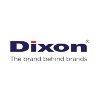
Dixon Technologies

ECIL
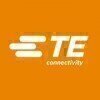
TE Connectivity
- Home >
- Interviews >
- Flash Electronics Interview Questions



